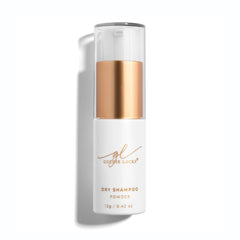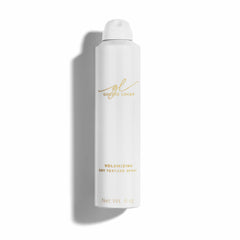How often do you find yourself in the infinite scroll on social media to be envious of so many people showing long, thick, healthy-looking hair, yet you are lacking “that look?” You may be the type to try any and every new hair care product, expensive or drug store brand – anything to try to give yourself a nudge to better overall hair health but to no avail. If this sounds like you, we’ve got you covered in this blog as we explore the internal deficiency you may be experiencing.
While a new prescription may not be in order we will be discussing linked studies and research observations, you may find your pain points fall within. So let’s explore the importance of vitamins and minerals beyond overall health and how a deficiency could manifest in terms of hair health.
Importance of blood and your hair

Your vitamin and mineral intake serves every place in your body that your blood flows through until eventually making it to the base of your 80,000 - 120,000 hair follicles on your scalp. Blood is delicately delivering essential nutrients to your hair follicles that contain vitamins and minerals that are necessary to create new hair growth.
What types of vitamins and minerals are found in hair?
- Biotin: Vitamin B7 plays an important role in keratin production and a deficiency in this vitamin can result in premature hair loss, brittle hair that is prone to breakage.
- Vitamin A: Essential for cell growth and development. A lack of Vitamin A may lead to dry, itchy and unbalanced scalp that would directly affect a healthy growing environment for all hair types.
- Vitamin D: A fat-soluble vitamin that maintains the vitality of hair follicles, the place where hair growth is formed, a deficiency would certainly show as slow hair growth and eventually hair loss.
- Vitamin C: Is a widely known antioxidant that protects the hair follicle and scalp from free radical damage. If you lack antioxidant protection you are opening yourself up to damage like premature gray hair.
- Iron: Delivering oxygen to your body is essential to living and to your scalp. Not receiving enough oxygen sent to the scalp would expedite the degeneration of each hair follicle.
- Zinc: To substantially reduce scalp issues like dandruff, dry scalp or eventual hair loss, zinc will play an important role as it promotes new cell growth and protein synthesis.
- Collagen: Found in all important body parts, collagen is more than superficially reducing wrinkles as we age, it is an important build-block to healthy, vibrant hair.
- Selenium: A deficiency in this mineral can lead to a weakened immune system, hormonal imbalances, and oxidative stress, all of which can contribute to hair loss.
What causes vitamin deficiencies?

Vitamin deficiencies can be caused by a variety of factors, including:
- Inadequate diet: Not eating a variety of healthy foods, not eating enough, and diets that cut out entire food groups can all contribute to vitamin deficiencies.
- Blood loss: Women who experience heavy menstrual periods, illnesses, or injuries that cause blood loss can develop vitamin deficiencies.
- Digestive system disorders: Conditions that limit the absorption of nutrients, such as inflammatory bowel disease, celiac disease, or pancreatic disorders, can lead to vitamin deficiencies.
- Medications: Certain medications can interfere with the body's ability to absorb nutrients, including antibiotics, acid-blocking drugs, and some cholesterol-lowering drugs.
- Smoking: Smoking can interfere with the body's ability to absorb nutrients.
- Excessive alcohol consumption: Drinking too much alcohol can affect the liver's ability to store and release vitamins and minerals.
- Genetic disorders: Some genetic disorders can cause vitamin deficiencies, such as cystic fibrosis, which can lead to deficiencies in vitamins A, D, E, and K.
- Environmental factors: Exposure to toxins and pollutants, such as lead or mercury, can also contribute to vitamin deficiencies.
It's important to maintain a balanced and healthy diet to get all the vitamins and minerals your body needs, but sometimes other factors can cause deficiencies.
Premature Hair Graying

When we lack vitamins and minerals we may experience fatigue, hormonal disruptions and premature aging. Our hair can directly get affected if we do not carry a balanced diet that includes essential nutrients. There are studies that link a lack of protein and other essential vitamins can cause you to have premature graying of the hair. There is a time frame when this may be reversed for some but you would want to be proactive before the pigmentation is lost for good.
Stress, Vitamins and hair loss

Stress is a big factor in our hair growth, hair turning gray and how our hair regenerates. Those who lack vitamins that can support our central nervous system like; Vitamin B, C, D, E and herbs like ashwagandha that may reduce stress response, have been linked to Telogen effluvium, temporary hair loss.
Final Thoughts
Any discussion into hair loss or to see visible hair growth becomes very personal depending on a variety of factors we’ve listed above and while we try to incorporate a healthier diet and lifestyle our day to day nutrient gaps may outweigh our efforts. Which is why we offer products like Goldie Locks® Hair Supplements that may fit into your daily routine to ensure you receive your daily intake of vitamins and minerals that may balance the body, enhance your energy levels and encourage those visible hair growth results you are looking for.




























